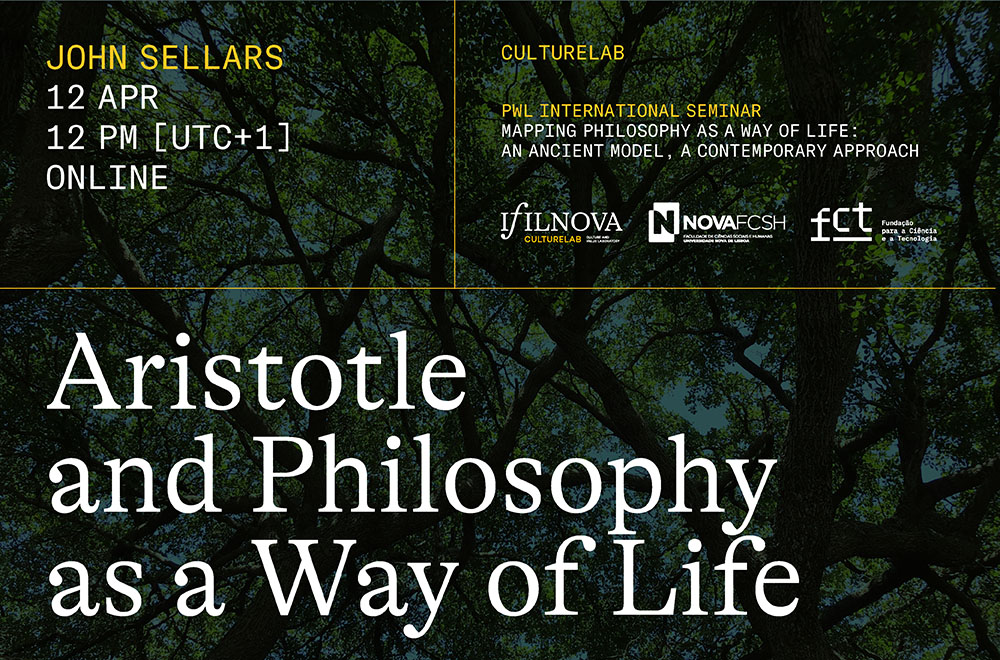John Sellars

12 April | 12 PM (UTC+1)
7 AM New York
8 AM Brasilia
12 PM Lisbon & London
9 PM Melbourne
For other locations click here.
Abstract
One potentially challenging case for Pierre Hadot’s claim that all of ancient philosophy was ultimately a way of life is Aristotle. At first glance it is far from clear that Aristotle understood philosophy in this way. In his Metaphysics in particular Aristotle seems to define philosophy as the acquisition and contemplation of knowledge. If Aristotle turns out not to fit with Hadot’s model that would appear to be a serious problem, for it is difficult to take seriously any account of ancient philosophy if it cannot accommodate Aristotle. In this talk I shall examine Hadot’s comments about Aristotle and how he accounted for how Aristotle might fit into his conception of ancient philosophy.
Bio
John Sellars is a Reader in Philosophy at Royal Holloway, University of London (where he is currently programme lead for Philosophy), a Visiting Research Fellow at King’s College London (where he is Associate Editor for the Ancient Commentators on Aristotle project), and a Member of Common Room at Wolfson College, Oxford (where he was once a Junior Research Fellow and is a member of Wolfson’s Ancient World Research Cluster). He is also a member of two non-profit organizations aimed at bringing the ancient philosophy of Stoicism to a wider audience, Modern Stoicism and The Aurelius Foundation, and he is currently Chair of Modern Stoicism. He is the author of The Art of Living: The Stoics on the Nature and Function of Philosophy (2003; 2nd edn 2009), Stoicism (2006), Hellenistic Philosophy (2018), Lessons in Stoicism (2019), Marcus Aurelius (2020), The Fourfold Remedy (2021), Barlaam of Seminara on Stoic Ethics (2022, with C. R. Hogg), and Aristotle: Understanding the World’s Greatest Philosopher (2023). He is currently using the notion of philosophy as a way of life as a framework to reassess the philosophy of the Renaissance. Recent publications on this include: ‘Renaissance Humanism and Philosophy as a Way of Life’, Metaphilosophy, 51/2-3 (2020), 226-43, and ‘Renaissance Consolations: Philosophical Remedies for Fate and Fortune’, in O. Akopyan, ed., Fate and Fortune in European Thought, ca. 1400-1650 (Leiden: Brill, 2021), 13-36.
Registration required via email to mapping.pwl@gmail.com.
Eli Kramer & Leonard Waks
Growth Unbound: John Dewey on the Socio-Cultural Role of Philosophy as a Way of Life
14 Jun | 12 PM (UTC)
Lucas Nascimento Machado
Life Beyond Capitalism: An Attempt at an Interlocution Between Hadot, Foucault and Byung-Chul Han

